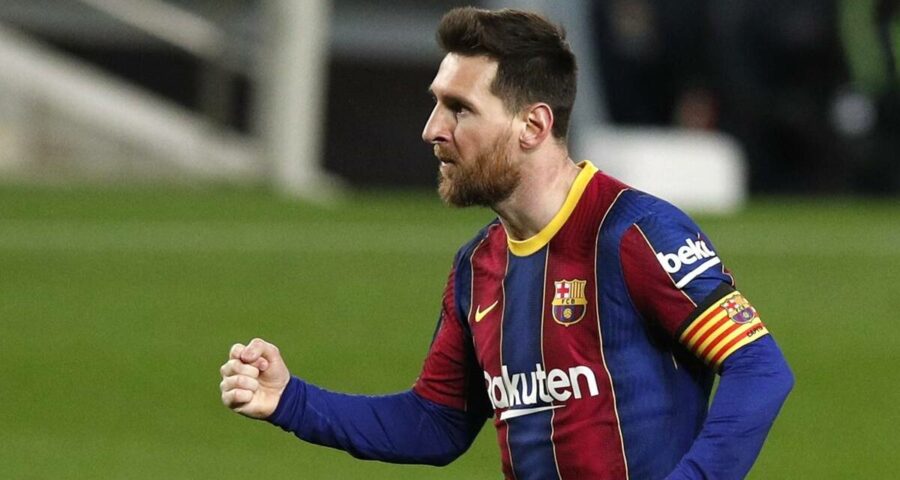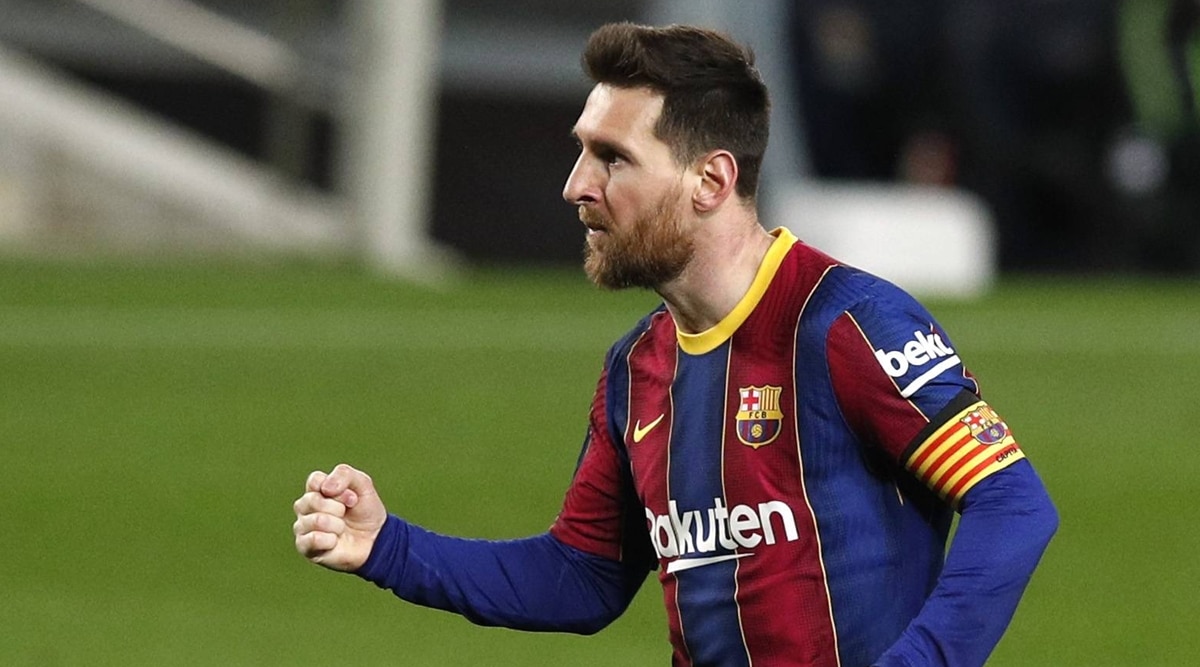A new contract, yet to be completed, almost certainly will require Messi, one of the world’s most valuable athletes, to accept a substantial pay cut.
By Tariq Panja
When Lionel Messi stepped off the field late Saturday night after the final of the Copa América, the Argentina captain — one of the most celebrated athletes in history — was, at long last, a champion in his national colors.
He was also, only weeks after his 34th birthday, unemployed.
Messi’s talent has never been in question. A six-time world player of the year, he is among the best players of his or any generation. His professional future, though, and even his ability to suit up for FC Barcelona next season, is suddenly very much in doubt.
Messi wants to stay at Barcelona, the only professional home he has ever known, and Barcelona desperately wants to keep him. But the club’s dire financial straits and a series of fateful decisions by team management — including the potentially disastrous one to let Messi’s contract expire at the end of June — have imperiled what is arguably the most successful association between a club and a single player in soccer history.
And the vise, in the form of Spanish soccer’s strict financial rules, is tightening by the day.
Messi said nothing about his contract situation over the past month while leading Argentina to victory in the Copa América in Brazil. And Barcelona’s new president, Joan Laporta, has tried to present a confident front. “Everything’s on track,” he told news crews camped outside his offices last week, when he and other Barcelona executives had huddled in search of a solution.
But the problem is that Messi’s future may no longer be in the player’s hands, or his club’s. Spanish league rules limit each club’s spending to only a percentage of club revenue, and league officials have said repeatedly that they not will weaken their rules to accommodate Barcelona, which is far over that limit.
In short, if Barcelona cannot cut 200 million euros, or about $240 million, from its wage bill this summer — an almost impossibly large sum in a soccer economy cratered by the pandemic — it will not be allowed to register any new players, including Messi, for next season. (Barcelona’s decision to allow Messi’s contract to expire last month means he now must be registered as a new signing, instead of a renewal, which might have been easier.)
A rupture between Messi and Barcelona would be seismic for both sides. Messi has been the focal point of Barcelona for nearly two decades, the architect of much of its success on the field and the engine of its financial might away from it.
But while Barcelona has collected money at breathtaking speed in recent years — in 2019 it became the first club to surpass $1 billion in annual revenue — it also spent with even more alacrity, living life on the financial edge through impulsive management, rash decisions and imprudent contracts. Messi’s most recent four-year deal alone, if he met every clause and condition, was worth almost $675 million, a sum so large that it had an inflationary affect on the salaries of all of his teammates, fueling a payroll that now eats up about three-fourths of Barcelona’s annual revenue.
Now, facing debts of more than 1 billion euros and losses in the hundreds of millions of dollars, Barcelona is struggling to balance its books in a way that adheres to league rules.
A new contract, yet to be completed, almost certainly will require Messi, one of the world’s most valuable athletes, to accept a substantial pay cut.
Victor Font, one of the losing candidates in this year’s presidential election, said he was surprised the team had yet to make the financial arrangements required to keep Messi. But like Laporta, he said he was convinced Messi would remain with the club.
“The alternative would be so much of a disappointment that I cannot think there’s an alternative,” Font said in a telephone interview.
The team is not getting any sympathy, or preferential treatment, from the Spanish league. Javier Tebas, the league’s CEO, told reporters this week that Barcelona only has itself to blame for its financial crisis. Yes, he told reporters, the coronavirus pandemic had battered the team’s finances, but other teams — notably Barcelona’s archrival Real Madrid — have found ways to operate within the league’s rules.
The issue, Tebas said, was that Barcelona has no room to maneuver. The league calculates different limits for each team based on each club’s income statements, but caps spending at 70% of revenues.
“It’s not normal for clubs to spend right up to the last euro of the salary limit,” Tebas said.
It is not just Messi’s fate that hangs in the balance, either. Barcelona has already announced the signings of his friend and Argentina teammate Sergio Agüero for next season, as well as those of Netherlands forward Memphis Depay and Spanish national team defender Eric García.
All three arrived as free agents, meaning Barcelona did not have to pay multimillion-dollar transfer fees to their former clubs, but the league will not register any of them, or Messi, until the club first makes deep cuts to its costs.
In an effort to create some financial wiggle room, the club has been working to offload players, tearing up contracts with fringe talents and negotiating the exits of some of its other stars. But all of its biggest earners remain, and with the transfer market deflated by the lingering effects of the pandemic, it is unlikely to receive significant offers from rivals for players those teams know it needs to sell.
Instead, Barcelona may be pushed to sell off key players — German goalkeeper Marc Andre ter Stegen, Dutch playmaker Frenkie de Jong and even Pedri, the latest locally reared Barcelona starlet, would most likely bring the highest returns — in order to make ends meet.
Font said he expected that Barcelona would prioritize re-signing Messi, even if that meant some of the team’s newest signings, or other key players currently under contract, would have to go.
“It’s a matter of trade-offs,” Font said. “You may not register other players, but you will not prioritize others over Messi.”
Source: Read Full Article



